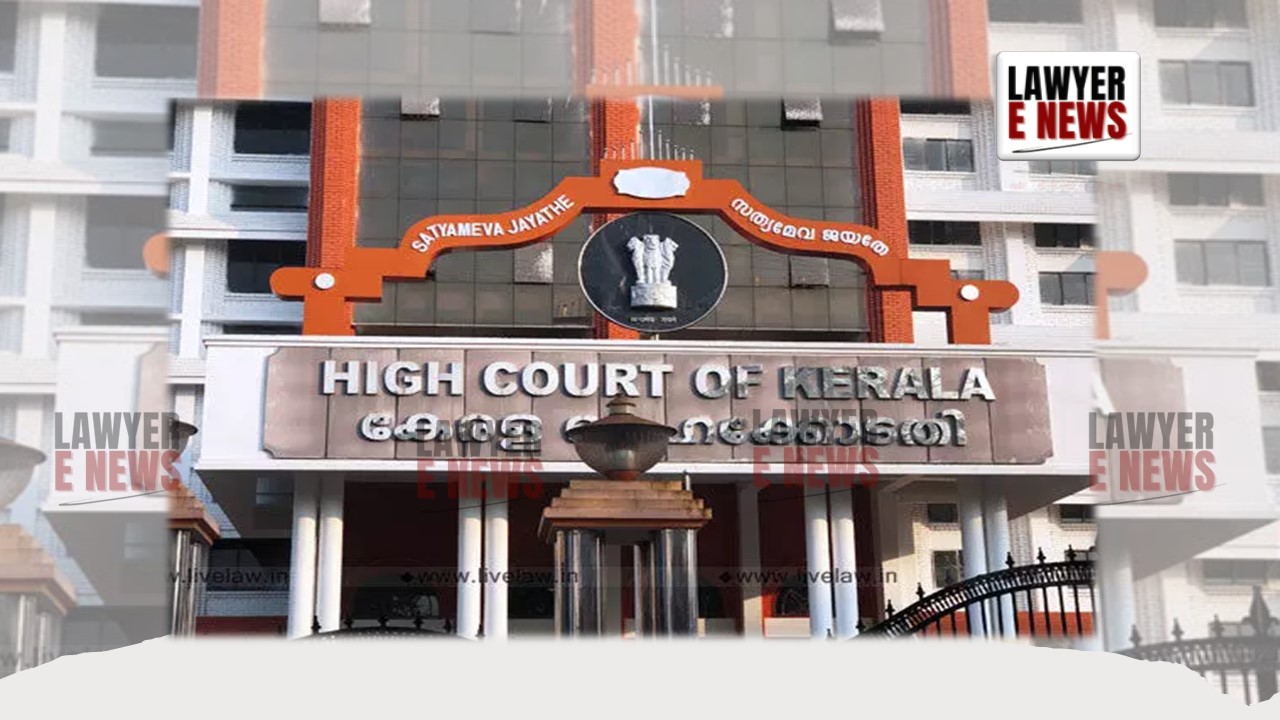-
by Admin
15 February 2026 5:35 AM



Kerala High Court delivered a significant ruling in CRL.MC No. 7372 of 2024, emphasizing the right to a fair trial. The court overturned an order from the Additional District and Sessions Court, which had denied the accused a readable copy of the 164 statement. This judgment underscores the importance of providing the accused with essential documents in a legible format to ensure a fair trial.
The petitioner, who is the second accused in the case registered as Crime No. 824/2022 at the Panangad Police Station, sought a legible copy of the 164 statement recorded by the Judicial First Class Magistrate Court IX Ernakulam. This statement, which plays a crucial role in sexual offense cases, was initially provided to the accused in an illegible format. Consequently, the petitioner approached the Special Judge under the Protection of Children from Sexual Offences Act, seeking a readable copy.
On January 22, 2024, the Special Judge dismissed this application, stating that if clarification was required during the trial, the Magistrate who recorded the statement could be summoned to explain it. The petitioner challenged this decision in the Kerala High Court, arguing that the lack of a readable 164 statement impedes the ability to prepare a defense and contradict the maker's testimony effectively.
Legal Issues at Hand and Court Observation: The primary legal issue revolved around the accused's right to access a readable 164 statement to ensure the right to a fair trial. The petitioner contended that this right is fundamental, especially when the statement is crucial for cross-examining the maker and challenging the prosecution's case. The prosecution, represented by the State of Kerala, did not initially provide a counter-argument against this claim.
Justice A. Badharudeen observed that the Special Judge's rationale was flawed. The right to a fair trial includes the right of the accused to access and use evidence, such as the 164 statement, to challenge the prosecution's narrative. The judge pointed out, “Asking the accused to wait to get clarification from the Magistrate after his appearance on summons to read and understand the 164 statement, which can be used for contradicting the maker, is injustice and the same is denial of fair trial guaranteed by the Constitution of India.”
The High Court meticulously reviewed the 164 statement and the lower court's order. Justice A. Badharudeen emphasized that the accused's ability to cross-examine the maker of the statement is a statutory right. The court highlighted that the 164 statement must be clear and comprehensible for the accused to utilize it effectively during the trial. Denying this would not only violate the principles of natural justice but also infringe upon the constitutional right to a fair trial.
Justice Badharudeen criticized the lower court's approach, stating that waiting until the trial to clarify the statement is unacceptable. The court further observed that if the prosecution chooses not to examine the Magistrate, the accused would be deprived of a critical opportunity to challenge the evidence, which could lead to a miscarriage of justice.
The judgment declared, “In order to enable the said purpose, the statement must be readable and legible. Therefore, a legible copy of the same shall be made available before the start of the trial, and the said mandate should not be deferred till the examination by the Magistrate who recorded the 164 statement.”
The Kerala High Court set aside the impugned order of the Additional District and Sessions Court, directing it to provide a readable copy of the 164 statement within 15 days. The Special Judge was granted the liberty to seek assistance from the staff of the Magistrate Court to ensure that the copy is prepared in a legible manner. This decision reinforces the principle that the right to a fair trial includes access to crucial documents in a form that allows the accused to mount an effective defense.
This ruling serves as an essential reminder of the judiciary's role in safeguarding the rights of the accused, ensuring that procedural fairness is not compromised, and that the legal process remains just and equitable.
Date of Decision: September 4, 2024
XXXXX vs State of Kerala
